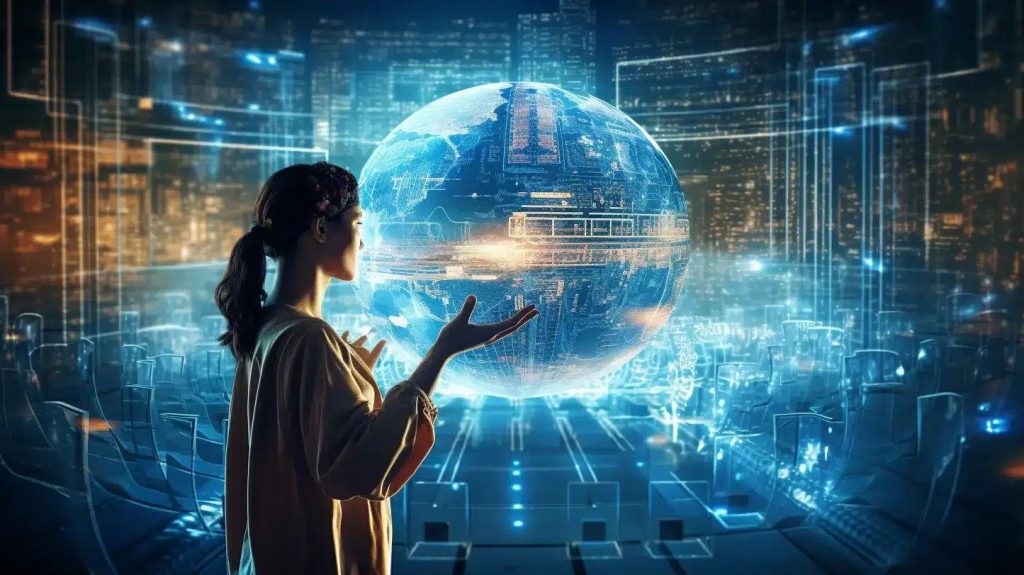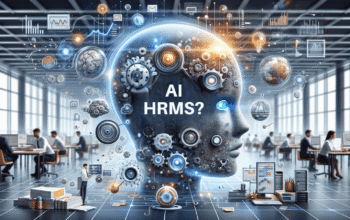Technology has always been a driving force behind human progress. From the invention of the wheel to the rise of artificial intelligence, every advancement has redefined how we live, work, and interact. In today’s fast-paced digital era, technological innovation isn’t just transforming industries—it’s reshaping the very fabric of society. As we look toward the future, it’s clear that our relationship with technology will continue to evolve in profound and unexpected ways.
Modern discussions around innovation and emerging trends often find their place in insightful platforms like Urban Splatter, where topics such as AI, robotics, automation, and the digital economy highlight how rapidly the world is changing. But beyond the fascination with new gadgets and tools lies a more meaningful question: how will technology enhance our lives and help build a more inclusive, sustainable world?
Artificial Intelligence: Redefining Human Potential
Artificial Intelligence (AI) is no longer a distant dream—it’s a daily reality. From virtual assistants and predictive analytics to autonomous vehicles and smart healthcare systems, AI is reshaping industries across the board. Businesses are leveraging machine learning algorithms to understand customer behavior, streamline operations, and improve decision-making.
In healthcare, AI-driven diagnostics can detect diseases earlier and more accurately than human doctors, leading to faster treatments and better outcomes. In education, AI-powered learning systems adapt to individual students’ needs, making education more personalized and accessible.
However, as AI grows in influence, ethical questions about data privacy, algorithmic bias, and job displacement are also emerging. The future of AI depends not only on technological innovation but also on responsible development. It’s vital that we build systems that enhance, rather than replace, human potential.
The Rise of the Internet of Things (IoT)
The Internet of Things (IoT) represents one of the most transformative shifts in modern technology. By connecting everyday devices—like refrigerators, thermostats, cars, and even clothing—to the internet, IoT allows them to collect and share data seamlessly.
Imagine a world where your coffee maker starts brewing as soon as your morning alarm rings, or your car automatically schedules its maintenance when it detects an issue. This interconnectedness is revolutionizing industries such as logistics, healthcare, and home automation.
In smart cities, IoT is being used to optimize traffic flow, manage energy use, and improve public safety. Smart sensors monitor pollution levels, while intelligent grids balance electricity demand more efficiently. These advancements not only make life more convenient but also pave the way for a sustainable and eco-friendly future.
The Power of Cloud Computing
The shift to cloud computing has redefined how businesses and individuals manage data. Instead of relying on physical servers, organizations can now store and access vast amounts of information through the cloud, reducing costs and increasing flexibility.
Cloud-based services allow startups and enterprises alike to scale quickly, innovate faster, and collaborate in real-time across continents. Remote work, once a challenge, has become effortless with cloud solutions that integrate communication, file sharing, and project management tools.
Moreover, the rise of hybrid cloud models has enabled companies to balance data security with accessibility. The flexibility of this system ensures that sensitive data remains protected while maintaining the agility required for innovation.
As businesses adopt these digital infrastructures, they’re not just improving efficiency—they’re future-proofing themselves in an increasingly competitive world.
Cybersecurity: Protecting the Digital Frontier
With great connectivity comes great vulnerability. As the digital landscape expands, so does the threat of cyberattacks. From data breaches and ransomware to phishing schemes, cybercrime has evolved into a major global concern.
Organizations are now investing heavily in cybersecurity measures, using encryption, multi-factor authentication, and AI-driven threat detection to safeguard data. Governments and private sectors alike are working together to develop frameworks that ensure digital safety without stifling innovation.
For individuals, cybersecurity awareness is equally crucial. Simple habits like using strong passwords, updating software regularly, and being cautious about online sharing can significantly reduce risks. In an age where personal and professional lives are intertwined with technology, digital literacy has become as important as traditional literacy.
Green Technology and Sustainability
As climate change becomes an urgent global issue, technology is stepping in as a key ally in sustainability efforts. Green tech innovations—ranging from renewable energy solutions to smart farming systems—are helping reduce carbon footprints and protect natural resources.
Solar panels, wind turbines, and electric vehicles are already reshaping energy and transportation industries. Meanwhile, advancements in materials science are leading to eco-friendly building materials, recyclable packaging, and waste-reduction technologies.
Smart homes powered by energy-efficient systems are another remarkable development. These innovations not only minimize environmental impact but also reduce utility costs for homeowners. Discussions around eco-conscious innovations and home advancements often explore how technology can make sustainable living both achievable and affordable.
The Evolution of 5G and Connectivity
The rollout of 5G technology is transforming communication on a global scale. Offering ultra-fast speeds, low latency, and greater network capacity, 5G is enabling a new generation of connected experiences—from autonomous vehicles to augmented reality (AR) and virtual reality (VR).
In industries like healthcare, 5G allows for real-time remote surgeries and telemedicine consultations, improving access to care. In manufacturing, it supports smart factories that rely on automation and data-driven insights.
This next-level connectivity also fuels entertainment innovations, such as cloud gaming and immersive digital experiences. As 5G expands, the boundary between physical and digital realities will continue to blur, paving the way for an even more interconnected future.
The Human Side of Technology
While the pace of technological advancement is breathtaking, it’s essential to remember that technology’s true purpose is to serve people. The goal isn’t just faster devices or smarter systems—it’s to improve quality of life, promote inclusion, and empower communities.
Human-centered design, accessibility, and ethical innovation are becoming central themes in technology development. Companies are realizing that empathy and usability are just as important as efficiency and performance.
As automation and AI take on more routine tasks, humans are freed to focus on creativity, strategy, and emotional intelligence—the very qualities that make us uniquely human.
The Road Ahead: Adapting to the Unknown
The future of technology is uncertain, but one thing is clear: change is inevitable. Emerging innovations like quantum computing, biotechnology, and advanced robotics are set to push the boundaries even further.
For businesses and individuals alike, adaptability will be the defining skill of the future. Continuous learning, digital literacy, and openness to new ideas will determine who thrives in this rapidly evolving landscape.
Technology is not just a tool—it’s a catalyst for transformation. The key lies in how we harness its potential to create a world that is smarter, fairer, and more sustainable for generations to come.
Final Thoughts
Technology continues to evolve at an extraordinary pace, influencing every aspect of our lives—from how we communicate to how we think about the future. The coming decade promises innovations that will reshape industries, economies, and societies in unimaginable ways.
As we stand on the edge of this new frontier, the challenge is not to keep up with technology but to lead it with vision, responsibility, and humanity. Because in the end, the greatest innovation isn’t in machines—it’s in our ability to use them wisely.




